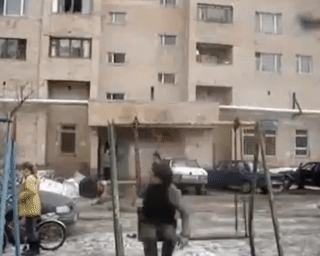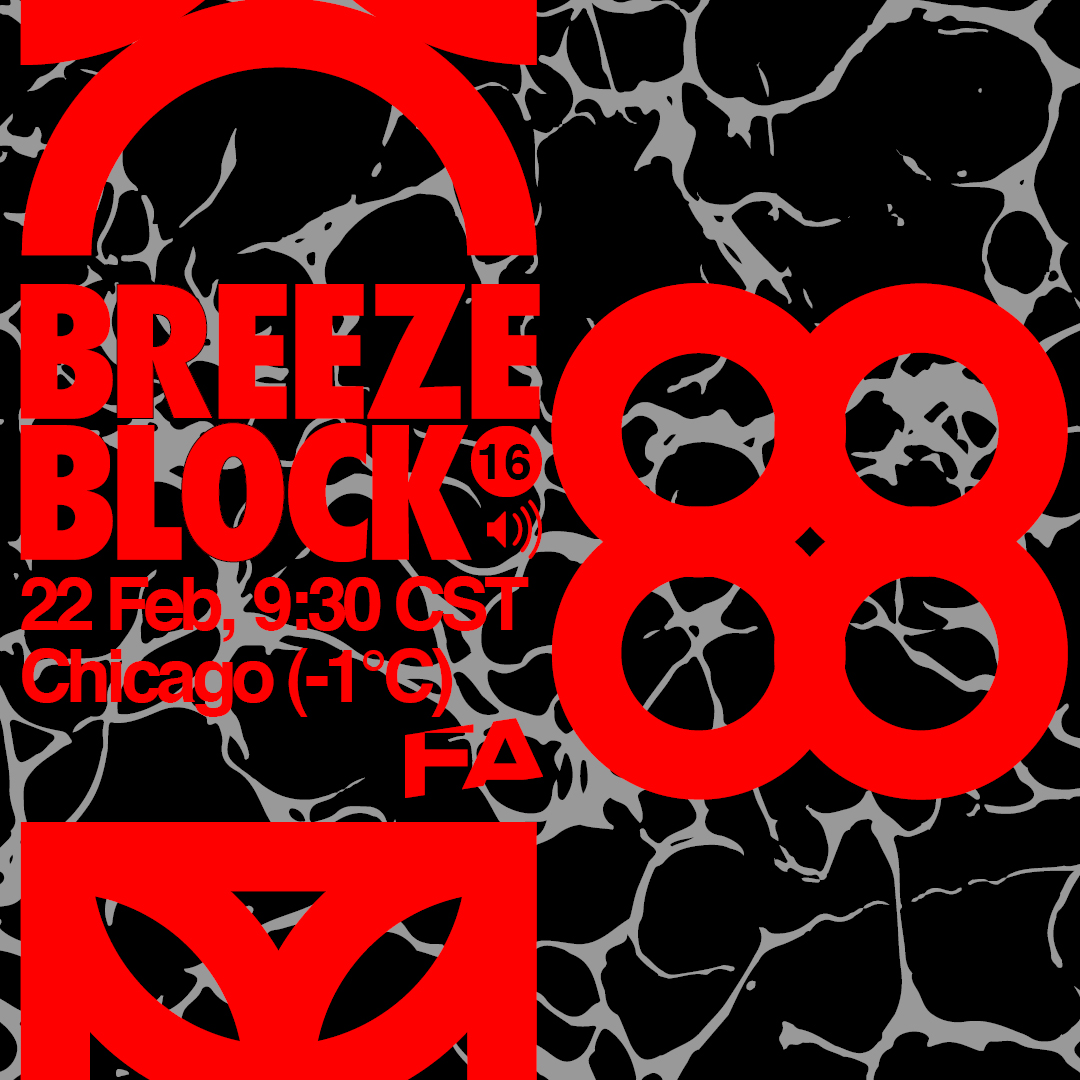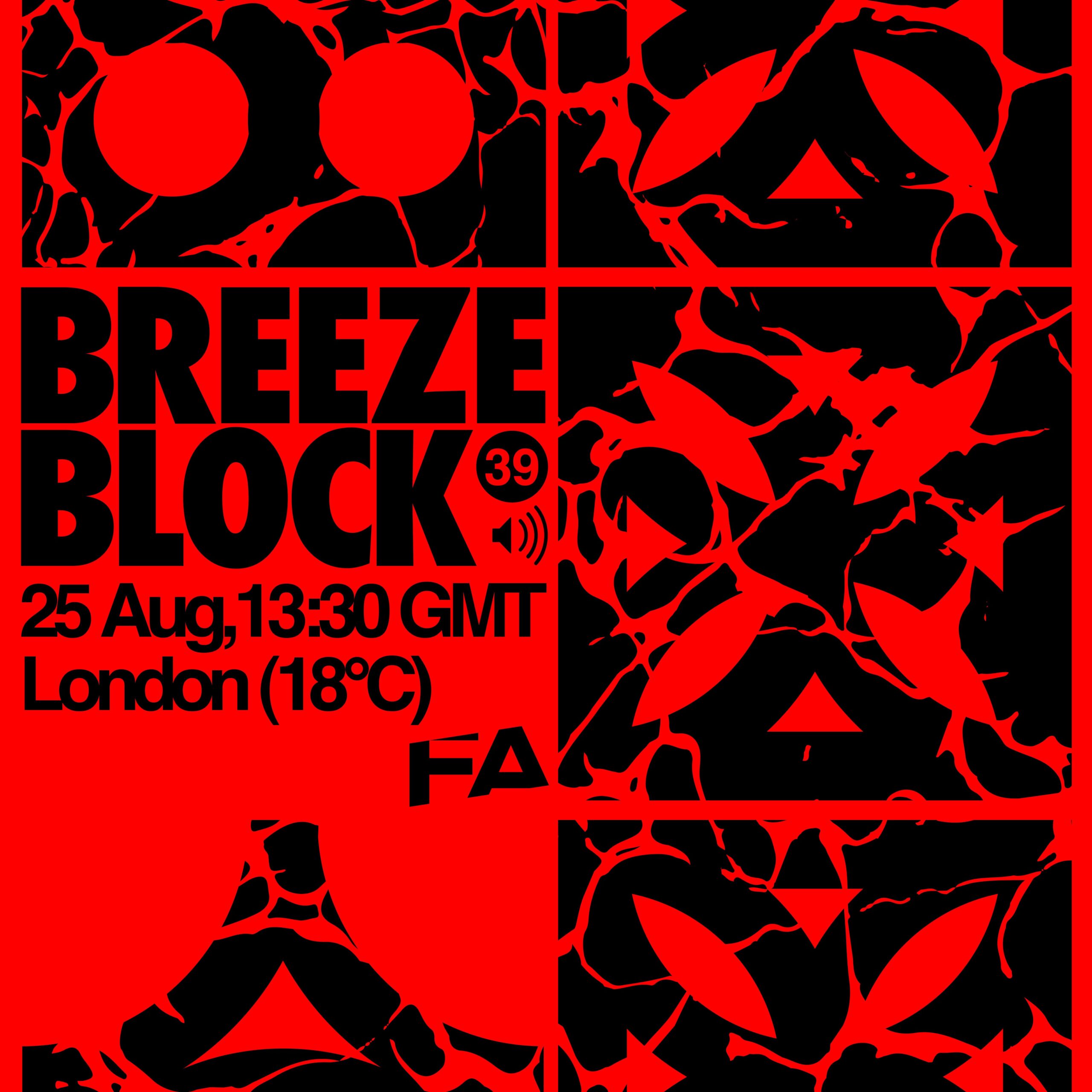Episode Transcript
Speaker 0 00:00:04 Hello, and welcome to felt architecture breeze blocks, where our editors share their thoughts on works in progress, urgent matters, and current happenings in architecture and spatial politics. My name is Charlie. <inaudible>, I'll be your host for today, but as we progress different felt architecture editors will be taking hosting duties, depending on who's got something to say on a given week, we decided to introduce this format in addition to the felt architecture podcast, because we wanted to have a space where we could react more immediately to things going on in the field architecture network. We've recently brought in 18 new editors, increasing our Amsterdam team and adding five new editors to what was a one person team in New York, as well as saying up satellites in Bogota, Beirut and Istanbul. And we figured this was a good way of building connections between the editors and all these different places. Also realizing the potential of all these people in different places. You have different perspectives and different outlooks on particular matters. As that suggests we're planning on releasing priests blogs on a fairly frequent basis. So please follow. And as always, if you like what we're doing, support us by following the link fed architecture.com/donate.
Speaker 0 00:01:24 So for this first episode, I'm speaking to ADA hustler, Olu, HEDA. Hello,
Speaker 1 00:01:30 Nice to be here. Thanks.
Speaker 0 00:01:32 Thanks for being here. Hey, there is one of the new editors of the assemble team who along with the rest of the team has been discussing the various ways that the COVID-19 outbreak has been affecting various spacial matters in the Istanbul area. ADA, maybe it's good to start with this report. The team discovered which visualizes the different effects that the COVID-19 outbreak has had on different income groups. Yeah.
Speaker 1 00:01:58 I mean, as we are at home all the time, we don't really, you know, see the streets and we don't really see who's outside, but still when we order something from the market that comes. So we were like discussing, okay, we are able to isolate ourselves at home, but there are people working for us to maintain the situation. Then this map created by velocity using 1 million of citizens data. It's just showing that the amount of people staying isolated and the area that can not isolate themselves. So it was showing that in the center of the city, the places with high rents and high household incomes versus staying at home most, and the people in the outskirts of Istanbul were not staying in their location. The interesting thing is that it's perfectly correlates with our idea of where working class is living and what neighborhoods has more expensive rents.
Speaker 1 00:02:58 It's in a sensor. I mean, taxing basic touch could be the center. I mean the more close to the Bosphorus and the salt part of the Istanbul. Yeah, there are, the rents are more expensive, but the outskirts really end up the city and we can see that it's most of the working class citizens are staying there and going to their work by public transportation. And their neighborhoods are like really red in that map. And I can also add that even though last week, the mayor of Istanbul shared that the percentage of using transportation reduce 85% in Istanbul in just 10 days, even though it's drastically changed it's we can still see that the working class is not isolate.
Speaker 0 00:03:51 Is the government doing anything to try and keep people at home in these neighborhoods? Or is there a sort of assumption that they need to keep going to work?
Speaker 1 00:03:58 I mean, it's really hard to talk about this topic because it's like everyday government is going on television and sharing some help packages or sharing some new information about the situation, but I can, you know, possibly say that, no, actually it's more well for us, but they really couldn't start doing anything about working class yesterday. The argon, the president was in television. Uh, he was saying that they started the fund and he put his salary of seven months to that fund. And it was asking to, you know, people for putting money on that fund. I mean, it's like just ridiculous. It's like, people are making fun of it. They are sharing memes and funny stuff, but it's like, haven't you already collected some money for that. There's a tension between the municipalities like stumbling disparity or the municipalities of the biggest cities anchorite stumble, isn't it.
Speaker 1 00:05:01 And the governance, because you know, the municipalities, they're doing some things. I mean, they're switching some buildings to the hospitals and they're trying to do some stuff and sharing about that, but they're saying that they're not really supported by the governments or they're not really connected. And also about the strikes. I mean, the construction industry is that it keeps working, but there are one off there. One example that I would really like to talk about it is others are cultural center, which is that prominent project of Istanbul. It's in the middle of the tuck, some square and subtext. Some scars really means a lot for Istanbul and it's really central. And there, I think last week as strike action started by workers since one of them must hospitalize on suspicion of coronavirus. However, the construction has not stopped until the test results were available. Yeah. This particular project is especially important since it's directly linked to the everlasting cases of special justice. In-country, especially in Istanbul. Also, maybe you have heard about Tuckson square because of the Gizzy protests. That building was, uh, one of the symbols of that process, because then, you know, there are like hanging, uh, protest, you know, like letters on the building. So it's like the construction was continuing there, but last week we had that strike started by the workers. That's great.
Speaker 0 00:06:36 We had an article about this taking Bactec shim. It, it starts with this quote from <inaudible> scream out as much as you want rant and rave what you destroyed it. Speaking about the fact that the protesters had already lost and the attitude cultural center was being built. And, um, there's a sort of really interesting dynamic in the center of the city in terms of development versus everyday life, I guess, how does like a lockdown and an end to the construction process that, how do you think that changes this already constantly changing process of like everyday life versus redevelopment?
Speaker 1 00:07:16 Yeah, just after that, uh, occupation happens, I have started to do university and my university is just there. I mean, like two minutes by walking from there. And it was like, we were just experiencing all the, all these situations, the bombs after the occupation. And then they decided to destroy the old, um, after through cultural sensor and, uh, decided to build new one. So it was like each day when we were going to school or going back from school to home, we were like seeing what is the process and how it's perceived in the timeline. And it was like super weird to see one day I was like, wow, how come they have constructed that much? I have been, you know, experiencing that area for like five last five years. So it's rapidly changing. Let's constantly, I mean, it's always changing and it changes so fast.
Speaker 1 00:08:17 I mean, when I first there, like five years ago, there was just a big Orthodox church there, but it's a, a couple of years ago they started the construction of a mosque, you know, just in the opposite side of the church. So it's like you, because of the, see the tension and at some points there, eh, malls is constantly being constructed at the other side, the old, uh, authentic cultural center. They left fifth there and it was like starting to be a ruin and started to get rotten inside. That's why they have decided to construct a new cultural center. That's why they have a new project there because the old one was really rotten. So, I mean, it's like always, they are constructing something at the other side, there is the ruins of the old buildings, but it's all so politic. You can see each day when you're passing by, this
Speaker 0 00:09:20 Is the context. And then now what you're saying is that the construction on the new center is continuing despite the calls to quarantine in the city.
Speaker 1 00:09:34 Yeah. I mean, as the old, you know, all constructions, it was continuing students last week. Actually, I don't really know like, what is exactly happening right now there, but last week, and at the end of the last week, we heard that there are, there's a strike action started by the workers. But I mean, in general, the most of the contract construction is continues. There is also, the project can only stumbled the control volatile mega project. And that project last week, we were so surprised by the news because it was saying that the tender stage is being started on the 26th of March for moving and reconstruction of two historical beverages on the impact area of the project. I mean, kennel stumble project. Maybe I can say a little bit about that. They are planning to construct a kennel in the European side of Istanbul because you know, all the ships and they are passing by the bus first.
Speaker 1 00:10:34 So they wanted to construct a camera there for, you know, countries to use that maybe it would be something profitable, but it was really last month. It was really controversial. And there were many debates on environmental economical and political impacts. And although many public services are suspended, this controversial projects continue to proceed in some maze and benefit from cows actually. And that shows, you know, that, that they have started the tender stage for that project in 26th of March. That means that they don't really stop it violation of nature and protected areas are also being oversight in such a chaotic atmosphere. And this gives way to the law amendments without facing us significant resistance by people because people are all isolated in their houses and they are trying to stay alive.
Speaker 0 00:11:30 Interesting. Like not only are they not stopping because they should stop themselves, but they're actually taking advantage of the fact that everybody else is at home to take advantage of the fact that there won't be any protests during the process of tendering. It reminds me of, um, a video was circulating of a New York construction site. A group of workers were watching one worker speaking to the rest of them saying, we need to stop. We're not being given the right protective gear, but one of our other editors, Joshua was saying luxury condos in New York, the construction sites are still hosting workers. And this is in one of the main hotspots of the pandemic. They're not just forcing, you know, essential workers to keep working, but it's also people working on construction sites working to build luxury housing. It's, it's really a Testament to the fact that the priorities of open development, um, uh, completely skewed.
Speaker 2 00:12:30 What is my job? I lose my job like this, but I don't care. Fuck. You don't give a fuck anymore because I'm scared. I got to say, my wife is crying every time I go home, I'm going to kill her father. If I have something <inaudible> you guys broke up for each other. We know each other here. When you're in the work site, you guys don't have six feet around you. We're all freezing on each other. Is your eating facilities. Are they sanitized? You'll have one at <inaudible> did not show me the hockey facility. And he kicked me out of his trailer. He doesn't own anybody. You don't need to be intimidated by that name. He doesn't own it. Nobody owns.


